February 2020 Grant Recipients
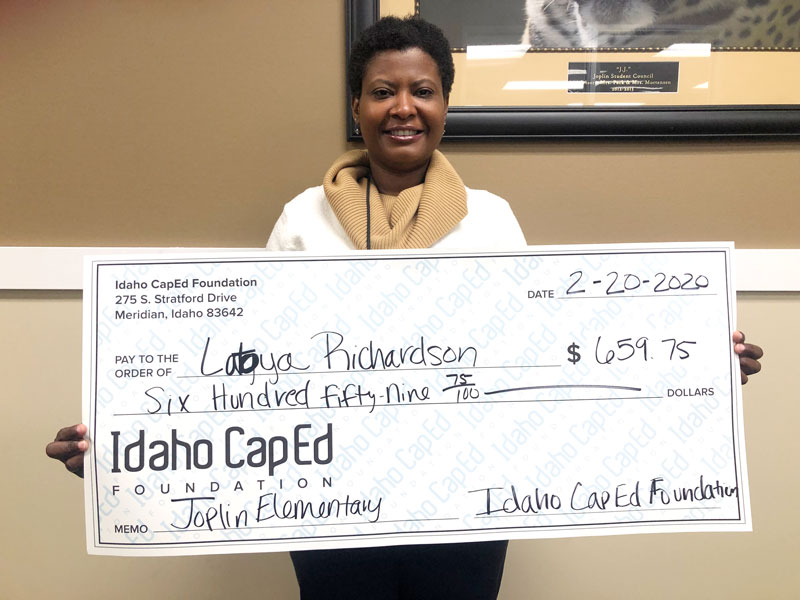
Classroom Materials for Disabled Students to use for Coping Skills and Rewards
Latoya Richardson - Joplin Elementary School, Boise
$659.75
This project will enhance the learning for special education students who are non-verbal and have autism, cerebral palsy, and/or physical impairments, by making sure their sensory needs are met and they are given the support to help with calming and relieving stress when things do not go as intended in the Extended Resource Room. Students will use tactile learning toys such as fidgets, fabric items with textures, and weighted blankets to help with their sensory challenges, help with meltdowns, and help with stress relief (calming/soothing) in situations that are difficult and challenging for them. Cause and effect toys will help students through interactive play and they will learn how to interact in pro-social ways, that their actions can cause something to happen, and then how to problem solve when a problem arises.
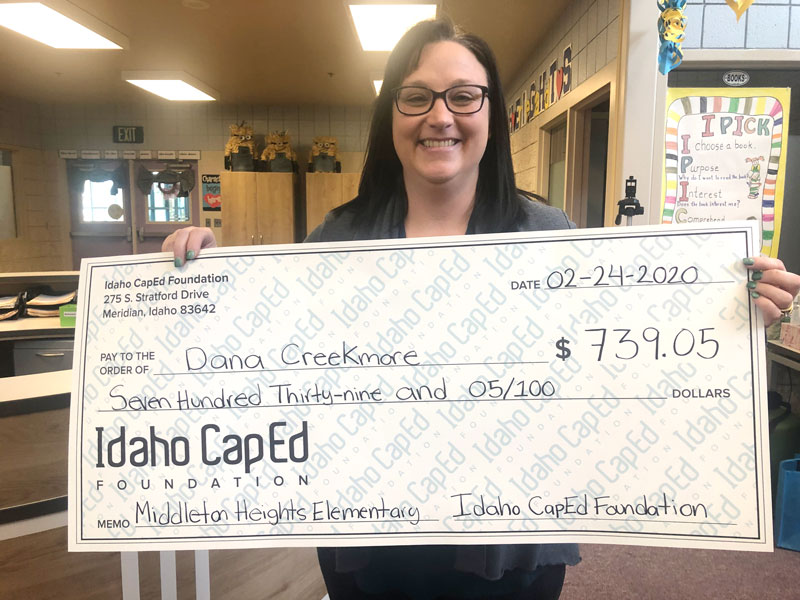
Diversity School Library Books
Dana Creekmore - Middleton Heights Elementary School, Middleton
$739.05
Our community is a strong agriculture town with seasonal migrant workers. I took a hard look at our current library book collection and sadly realized our books have little to no cultural diversity. There is a saying that books should be a mirror that you can see yourself in and also a window into the lives of those you have never imagined. Our school library lacks the books that are windows to see beyond what is in front of us, to understand different beliefs, traditions, values, clothing, residency, economic status, language, color, race or ethnicity. By providing library book choices reflecting cultural diversity and disabilities for students to practice reading at home to become proficient readers is the ultimate goal. One book can change a person. An entire library can change a school. All 535 students will have access to check out the school library books.
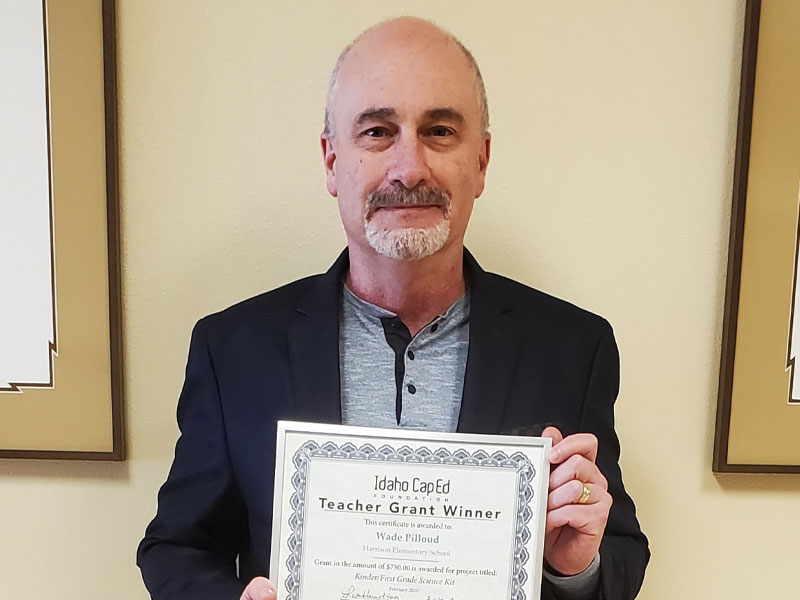
Kinder/First Grade Science Kit
Wade Pilloud - Harrison Elementary School, Harrison
$750.00
With this grant, we will purchase a Foss Science Kit for our Kindergarten and First grade classes. Being a small, rural district with high poverty, we do not have sufficient funds to purchase the kit. We have currently patched together some materials for science, but the Foss Kit will help bring science alive for our students and assist our implementation of the science curriculum in ways we are currently unable. The kit includes topics such as animals, weather, materials in our world, balance and motion, solids and liquids, and more.
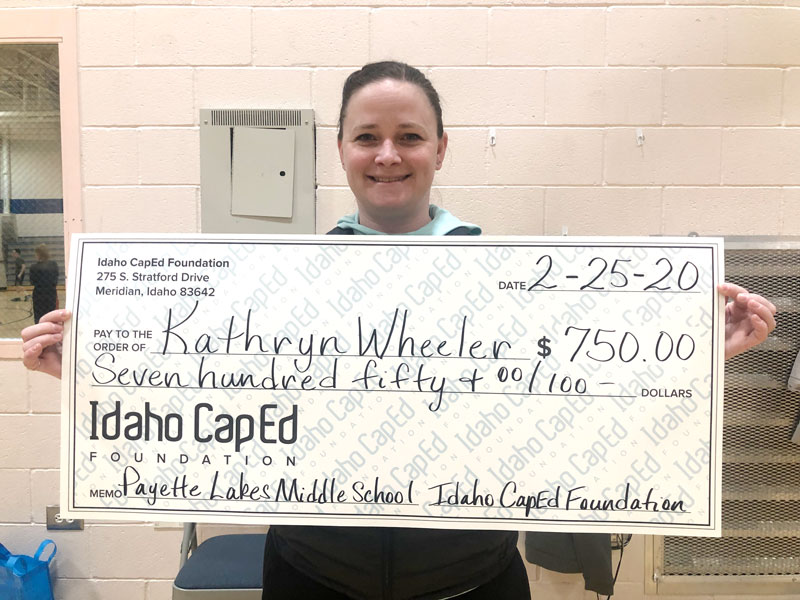
Making Fitness Fun and Focused in Middle School PE
Kathryn Wheeler - Payette Lakes Middle School, McCall
$750.00
Students in our district are exceptional at participating in a wide range of activities, whether it be music groups, theater productions, after school programs, clubs, or athletics both in and out of school. They take pride in their commitment to these endeavors and work tirelessly to hone their abilities. This project strives to improve our school’s ability to provide students with conditioning and fitness programs. We do not have the ability to create a weight room in our school as there is not the space to do so. Instead we are seeking equipment that can be stored and taken out to give students all the necessary items for a complete workout. This will give them the fundamental understanding of lifting, equipment they can use for a full body workout that uses primarily body weight, and will develop muscles and movement patterns to prepare them in their success as they move into high school.
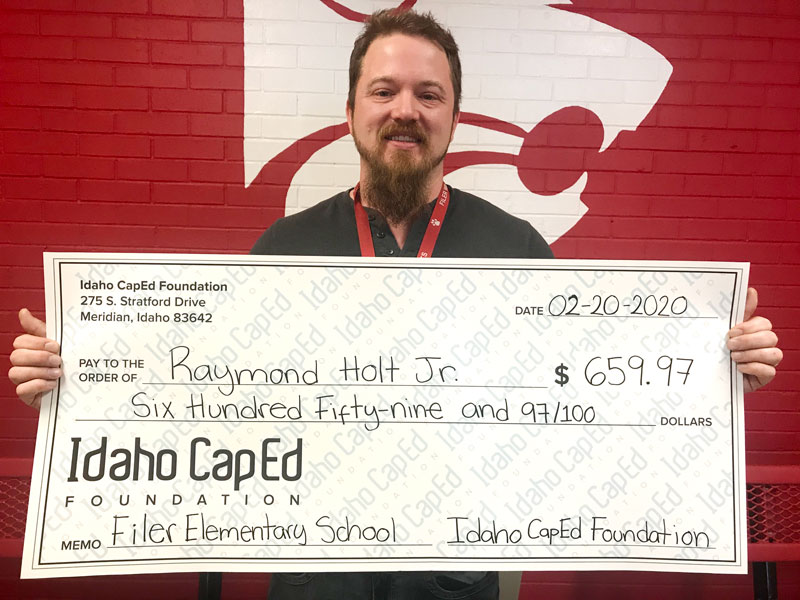
Self-Regulation Interventions for Children & Adolescents
Raymond Holt Jr - Filer Elementary School, Filer
$659.97
As the Behavior Intervention (BI) Team Lead, I work with children Pre-K through 3rd grade, engaging students that struggle to regulate their emotional states within the school setting. While most of my caseload rests within the Special Ed demographic, I do intervene with students struggling on a day-to-day basis. The District budget is unable to allow BI staff to receive training I believe beneficial. Budget constraints attendance at external training opportunities unless staff choose to attend at their own expense. The training that is the focus of this funding request focuses on ability to intervene with challenging children; i.e., the child that can’t sit still, struggles with following directions, throw justify-content-centers tantrums and becomes a distraction to the other 20+ students in their classrooms, or that have difficulty keeping their hands and feet to themselves or waiting for their turn. This training will help better assist not just the students in Special Ed, but potentially all 400+ students in the school.
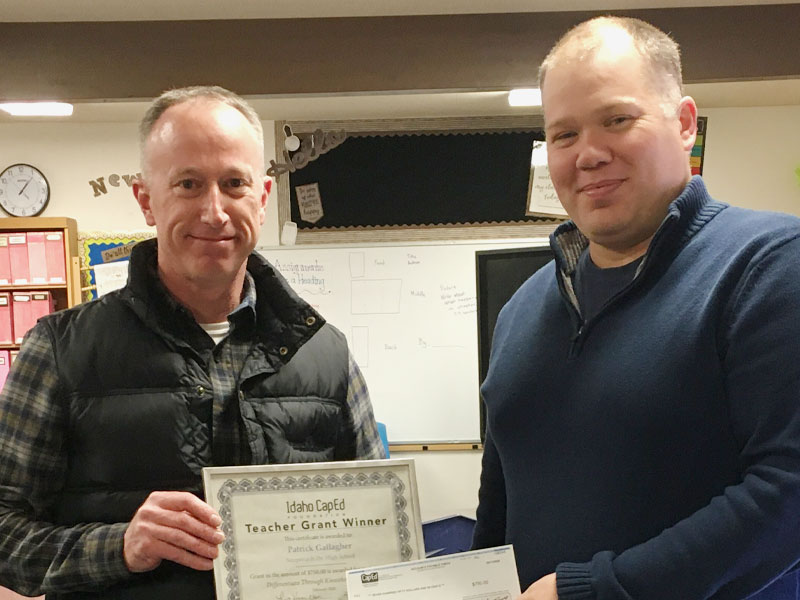
Differentiate Through Kinesthetic Approach
Patrick Gallagher - Nezperce Jr./Sr. High School, Nezperce
$750.00
My project goal is to provide a differentiated learning environment for all students in pre-algebra class through a kinesthetic approach using the TI-Innovator Rover (TIIR) kit. With the TIIR technology, I will be able to challenge the high-level students that are ahead of their classmates through guided STEM lessons that apply and strengthen the math skills already learned. Motion adds to learning, not only by the student moving, but also by use of manipulatives. This allows higher-level students to continue to be challenged and engaged in the course material, while learning how to apply mathematical skills to technology. The main body of students will be able to reinforce their understanding of key concepts by using the kit as well, with the guidance of myself or a peer. Peer-to-peer learning fits seamlessly with our current curriculum model, and student mentors solidify their knowledge by teaching concepts to others.
With the addition of these kits, pre-algebra students will be able to apply mathematical skills to real world problems. Use of the kits will strengthen their foundation and understanding in key concepts, all the while keeping them engaged,focused on the curriculum, and reinforcing that math is fun and relevant.
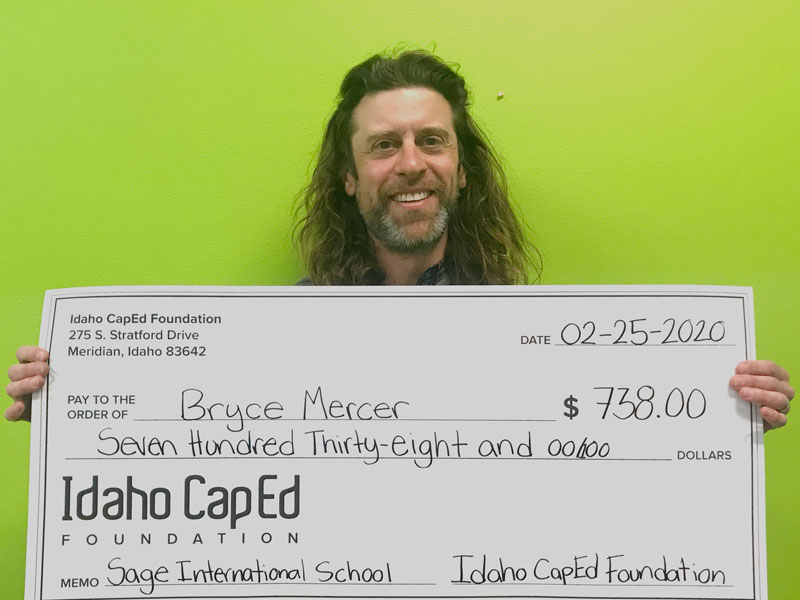
Creating Alternatives to Petroleum Based Plastic
Bryce Mercer - Sage International School, Boise
$738.00
Plastics are a current global issue. Very little is recycled and most ends up in landfills or the environment. Additionally, the creation of synthetic, petroleum-based plastics reduces the amount of petroleum available for other applications such as transportation, industry, or heating. One solution to this problem is to create new alternatives to traditionally manufactured plastics. The intention of this project is to show students that creating and experimenting with alternatives to petroleum-based plastics is achievable. Students will gather and make sense of information to describe how synthetic materials come from natural resources and impact society, which is Idaho State Science Standard PS1-MS-3. Students will create a bioplastic formed from cornstarch, glycerin, and water. They will then experiment with different variants of the original recipe and share out their results to determine how each ingredient affects the properties of the final product. Students will share their results with the class and then use the data in their design technology class to create a product based on our bioplastic findings.
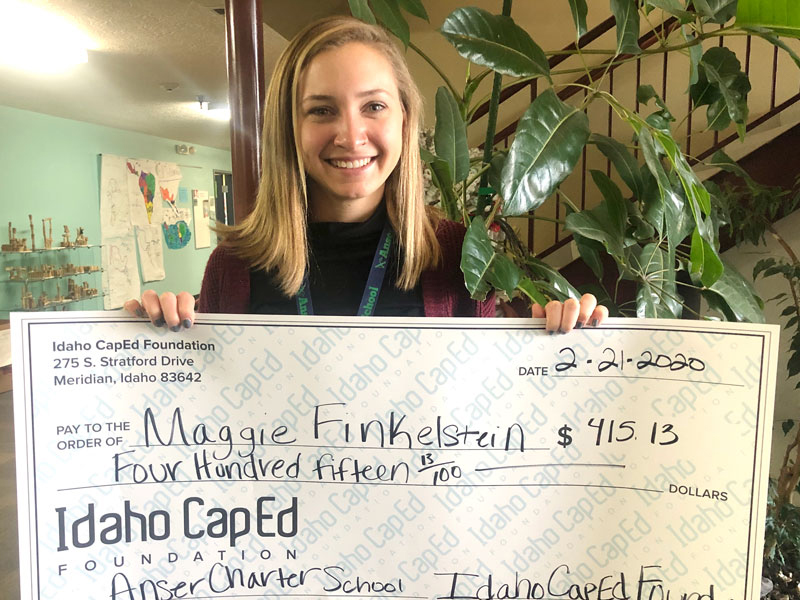
Breakfast Program
Maggie Finkelstein - Anser Charter School, Garden City
$415.13
Children coming to school hungry without breakfast are unfortunately, not few and far between. Without breakfast, children are seen to exhibit academic and behavioral problems, show lower scores on assignments and tests, marked increased errors, higher levels of absentees and tardiness, and the list continues. Our mission is to support these children that come to school hungry by providing nonperishable, nutritious food to replenish their bodies and provide the essential nutrients to keep their energy, mind, and bodies activated and engaged in order to enhance their educational knowledge and experience. We are currently gathering the unused purchased food and beverages from daily school lunch and utilizing these items for hungry students to access on an as-needed basis. Our school Social Worker and school aids will help determine and identify the students who would benefit from the breakfast program, and our Lunch Program Manager is working to establish a federally funded School Breakfast Program.